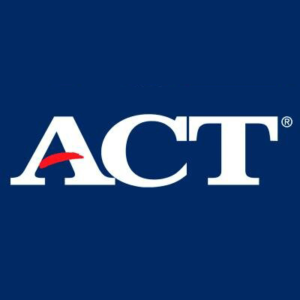 In a year when many test dates were postponed or canceled due to the global pandemic and when many colleges and universities made standardized test scores optional, only 1.2 million members of the 2021 graduating class of high school seniors took the ACT college entrance examination. This was down from 1.6 million in 2020 and more than 2 million in 2017.
In a year when many test dates were postponed or canceled due to the global pandemic and when many colleges and universities made standardized test scores optional, only 1.2 million members of the 2021 graduating class of high school seniors took the ACT college entrance examination. This was down from 1.6 million in 2020 and more than 2 million in 2017.
For the Class of 2021, the average score on the ACT dropped to 20.3 on a scale of 1 to 36. This was the lowest average score in more than a decade. For the fourth year in a row, the average score for African American students dropped. This year, the average score was 16.3, down from 16.7 in 2020 and 17.1 in 2017. The average score for Whites also dropped to 21.7 from 22.0 in 2020 and 22.4 in 2017.
Based on score results, the American College Testing organization calculates the percentage of students who took the ACT test who are adequately prepared to take on a college-level curriculum. In 2021, 28 percent of Black test takers were rated ready for college-level courses in English, compared to 67 percent of Whites. In mathematics, only 10 percent of Backs were rated college-ready compared to 44 percent of Whites. In science, ACT data shows 11 percent of Blacks were ready for college-level courses compared to 44 percent of Whites. In reading, 18 percent of Blacks achieved the minimal benchmark for college readiness compared to 53 percent of Whites. All of these scores for college readiness for both Blacks and Whites were down from 2020.
The most striking statistic is that only 6 percent of all Black test takers were rated ready for college-level courses in all four areas of English, mathematics, science, and reading. Whites were more than five times as likely as Blacks to be prepared for college-level work in all four areas.











While I should say, “wow” I am not surprised by these statistical data. This confirms why ACT scores are not a good indicator of matriculation through college. I am confident that more than 6 percent of Black students who attended college-level courses were successful in their courses of English, mathematics, science and reading.
Many are successful in their courses because the institution incorporates some component of ‘remediation’ to mitigate 12 previous years of deficient education. Passing requires much more effort from the institution and more effort from students who score below college ready, especially in Math & English.
College Ready in Math and English have been the excellent predictors of retention, progression, and completion at every institution where I worked in IR.
While not perfect, these are very good predictors and informative of students’ prior preparation for college level course work – especially in STEM.
There needs to be a hard look at why and how the K-12 system is not preparing black and brown students for college; and a deeper understanding of the culture of education in black and brown communities.
PEACE
The Educational System should revisit the learning curriculums for Level 1 students. Especially third graders, as by this time social, educational, and academic development is hard to undo. During this stage of a child’s educational journey is the most effective place to intervene. Teaching curriculums should implement cultural arts and leadership literacy as a means of holistic development. When black children are not succeeding in our systemic educational system, our educational system must ask questions, be innovative, and use sources like the Educational Policy Institute to pinpoint which areas on the globe needs immediate intervention. Black children, like all children and everyone, needs to be understood. There needs to be more conversations had and researched conducted on Black Child Literacy to reverse these numbers. Change can and will be attained. An inter generational approach to organizational leadership and administration will also be beneficial to our black scholars development. There are all points to ponder and think about as we enter into a new age and era of education and leadership.
Maybe at HBCU’s and Community Colleges, but not where the real education takes places, and certainly not at elite colleges which produce the successful business and professional leaders of America.